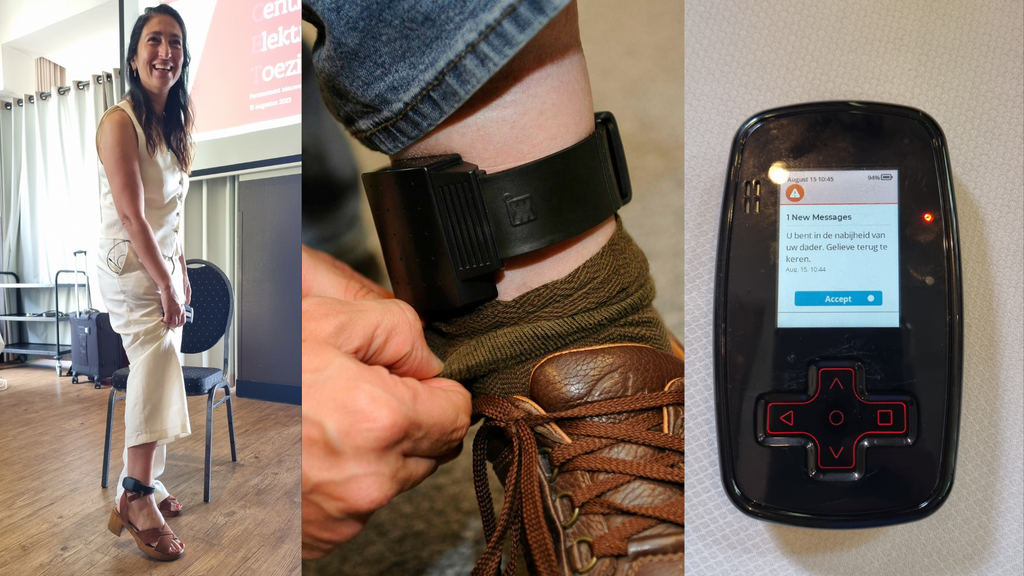A new generation of electronic monitoring in the form of ankle bracelets will be introduced in Belgium next year to better protect victims and dramatically step up the surveillance of perpetrators.
Judges have already increased the number of people who must ankle bracelets as part of their sentence with 1,300 more compared to the same period last year. Up to 7,000 people are expected to be placed under electronic surveillance this year, obliging them to be at home at agreed hours. Electronic devices with GPS trackers are used to check whether the wearer complies with this arrangement.
But the growing number of people wearing the devices is creating an extra judicial burden, which according to Flanders' Justice Minister Zuhal Demir highlights the urgent need for more high-tech equipment. From next spring, electronic surveillance in the country will be greatly expanded.
Victim security
In a bid to update the system that has been in place since 2014, the Allied Universal Electronic Monitoring service provider was appointed to supply a new generation of anklets for the next five years at a cost of €12 million. Demir highlights that these provide a tool to ensure social security and which helps victims.
The equipment will come into use in spring 2024 and will be capable of warning victims via a so-called "victim app" that an offender is approaching them or is violating their ban by entering certain areas. A similar system is already being used extensively in Spain, among other countries.
If a perpetrator does approach the victim, both can be alerted so that action is taken quickly. "This is a guarantee of greater peace of mind for victims. To me, this is an incredible technological asset that we must play in the interests of victims," Demir stated.
The bracelets will reportedly also monitor alcohol and drug use, but this will not take effect before the end of 2024 or the beginning of 2025.
Big Brother principle
The system will also be able to track juvenile criminals who are given the opportunity to finish school outside a community institution. The system will have a clear view of the routes they take to and from school. "Is this a sample of Big Brother behaviour by the government? That is exactly what it is," Demir said.
"That is exactly what these young people need. The ankle bracelet that records their comings and goings is a tool of the real 'big brother' that gives justice, police and civl organisations a framework to keep young people on the straight and narrow."
Related News
- New penal code relies on 'point system' to decide on punishment
- Nearly half of Belgians don't feel protected by law enforcement
The first delivery of anklets is expected for November, but a transition period is envisaged to replace the equipment, provide training and make the necessary agreements to make sure they are used for the right sentences, as Demir stressed this system should not be considered a panacea.
"The new generation of ankle bracelets is a step forward, but technology cannot solve everything. Still, too often we see that not the right profiles are chosen for the favour that an ankle bracelet is supposed to be. There must be very clear exclusion criteria in legislation for who can get an ankle bracelet."

